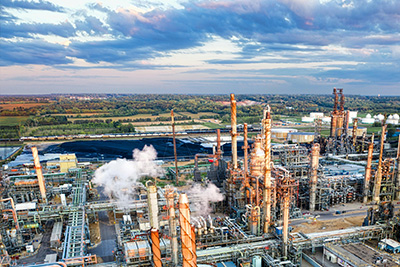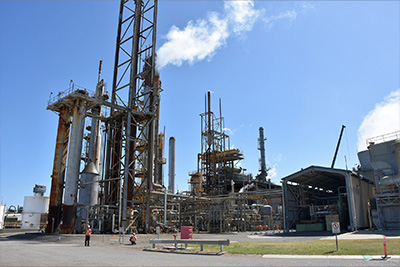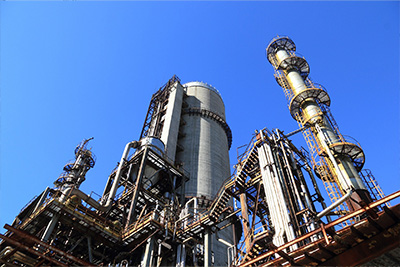-
![Mercaptide Tin: Te···]() 2024-11-19 Mercaptide Tin: Technical Challenges···
2024-11-19 Mercaptide Tin: Technical Challenges···Mercaptide tin production faces significant technical challenges, including complex synthesis processes and stringent quality control requirements. These challenges affect the efficiency and cost-effectiveness of manufacturing. In industrial applications, mercaptide tin is widely used as a catalyst in various polymerization reactions and as a heat stabilizer in PVC processing. Despite its benefits, such as enhanced thermal stability and catalytic activity, practical implementation requires overcoming production hurdles to ensure consistent performance and reliability.
read more > -
![Butyltin Compounds···]() 2024-11-18 Butyltin Compounds: Manufacturing St···
2024-11-18 Butyltin Compounds: Manufacturing St···Butyltin compounds, including dibutyltin (DBT) and tributyltin (TBT), are widely used in various industries such as polymer stabilization, biocides, and anti-fouling paints. However, these compounds are known to pose significant environmental risks due to their toxicity to aquatic organisms and potential bioaccumulation. Regulatory bodies have established manufacturing standards to mitigate these risks, focusing on limiting emissions and ensuring proper disposal methods. The implementation of these standards is crucial for environmental safety, aiming to protect ecosystems and human health from the adverse effects of butyltin contamination.
read more > -
![Methyltin Producti···]() 2024-11-18 Methyltin Production: Meeting Market···
2024-11-18 Methyltin Production: Meeting Market···The production of methyltin compounds, essential for various industrial applications, faces increasing market demand. To meet this demand sustainably, innovative practices focus on reducing environmental impact through efficient processes and waste minimization. These strategies not only ensure a steady supply but also align with global environmental standards, fostering both economic growth and ecological balance.
read more > -
![High-Performance O···]() 2024-11-18 High-Performance Octyltin Compounds ···
2024-11-18 High-Performance Octyltin Compounds ···High-performance octyltin compounds play a crucial role in enhancing the thermal stability, durability, and processing efficiency of polyvinyl chloride (PVC) materials during industrial processing. These organotin additives effectively prevent degradation caused by heat and light, ensuring longer product lifespan and improved performance. Their application spans across various sectors including construction, automotive, and packaging, making them indispensable for achieving high-quality PVC products.
read more > -
![Dimethyltin Stabil···]() 2024-11-18 Dimethyltin Stabilizers: A Detailed ···
2024-11-18 Dimethyltin Stabilizers: A Detailed ···This article provides an in-depth exploration of dimethyltin stabilizers, detailing their production processes and industrial applications. Dimethyltin stabilizers are widely used in the plastic industry due to their exceptional ability to enhance the thermal stability of polymers. The guide covers various manufacturing methods, emphasizing the importance of precise chemical ratios and reaction conditions. Additionally, it outlines the diverse applications of these stabilizers across sectors like PVC processing, where they prevent degradation during manufacturing and usage. The article also discusses recent advancements and future trends in the production and utilization of dimethyltin stabilizers, offering insights into potential innovations and market dynamics.
read more > -
![The Production and···]() 2024-11-18 The Production and Application of Me···
2024-11-18 The Production and Application of Me···Mercaptide tin is a crucial component in modern PVC manufacturing, enhancing the stability and durability of polyvinyl chloride products. This chemical compound is produced through a reaction between organic mercaptans and tin compounds, resulting in a series of stable tin thiolates. These mercaptide tin compounds act as heat stabilizers, effectively preventing degradation during processing and prolonging the service life of PVC materials. Their applications span across various industries, including construction, automotive, and electronics, where they ensure the quality and longevity of PVC-based components. The production process is optimized to meet stringent environmental standards, minimizing waste and emissions.
read more > -
![Butyltin Compounds···]() 2024-11-18 Butyltin Compounds: Environmental Im···
2024-11-18 Butyltin Compounds: Environmental Im···Butyltin compounds, including tributyltin (TBT) and dibutyltin (DBT), have been widely used in antifouling paints, leading to significant environmental contamination. These compounds are highly toxic to marine organisms, causing severe reproductive issues and bioaccumulation in the food chain. Recent studies emphasize the need for sustainable production approaches and alternatives to reduce their ecological footprint. Green chemistry principles and biodegradable materials are being explored to develop environmentally friendly butyltin alternatives, aiming to mitigate their adverse effects on ecosystems while maintaining functional efficacy.
read more > -
![Methyltin Compound···]() 2024-11-18 Methyltin Compound Production: Innov···
2024-11-18 Methyltin Compound Production: Innov···Recent advancements in chemical engineering have led to significant innovations in the production of methyltin compounds. These compounds, widely used in various industries including polymer stabilization and biocides, now benefit from improved synthesis techniques that enhance yield and purity. New catalysts and optimized reaction conditions have been introduced, reducing environmental impact and production costs. This progress not only boosts industrial efficiency but also ensures safer and more sustainable manufacturing processes.
read more > -
![Octyltin Manufactu···]() 2024-11-18 Octyltin Manufacturing and Quality A···
2024-11-18 Octyltin Manufacturing and Quality A···The production of octyltin compounds for PVC heat stabilization involves rigorous quality assurance measures to ensure efficacy and safety. These tin-based additives prevent degradation during the manufacturing and processing of PVC, maintaining its physical properties. Quality control processes include precise formulation, stringent testing protocols, and adherence to regulatory standards to guarantee optimal performance and minimize environmental impact.
read more >







